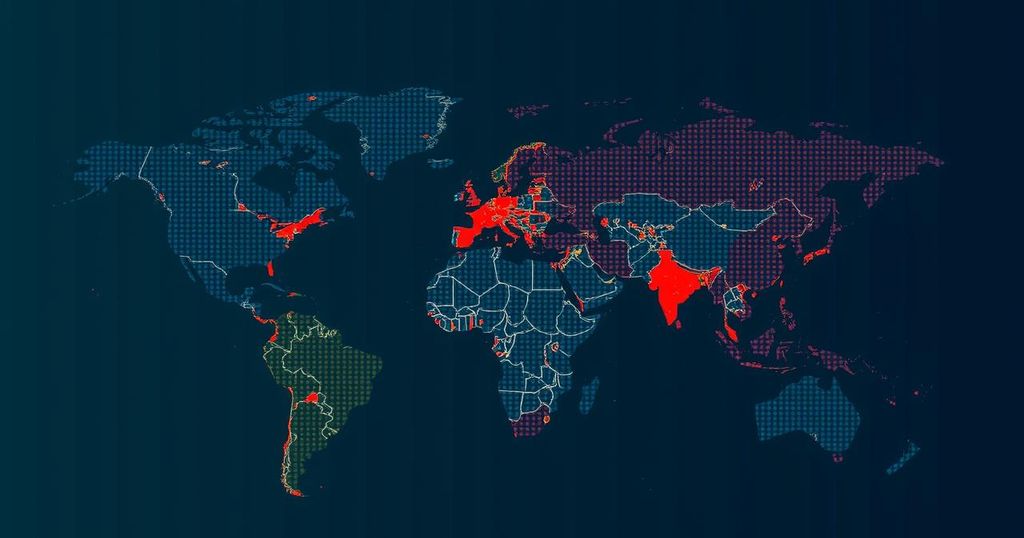Global news
ASIA, DIDI KUO, FREEMAN SPOGLI INSTITUTE, FSI, GEOPOLITICS, HAMAS, HEZBOLLAH, INTERNATIONAL RELATIONS, ISRAEL, MARSHALL BURKE, MICHAEL MCFAUL, MIDDLE EAST, NATIONAL SECURITY, NORTH KOREA, OR, ORIANA SKYLAR MASTRO, RUSSIAN INVASION OF UKRAINE, STANFORD UNIVERSITY, WAR, YEMEN
Marcus Li
0 Comments
Understanding the Current Global Threat Landscape: Insights from FSI Scholars
The article summarizes a panel discussion by scholars from the Freeman Spogli Institute for International Studies, addressing current global threats such as climate change, democratic backsliding, geopolitical tensions with China, the war in Ukraine, and violence in the Middle East. Each scholar presents key insights into these challenges, emphasizing the need for proactive strategies and reforms to support democracy and ensure international stability.
The contemporary global landscape is marked by a confluence of complex, interrelated challenges encompassing climate change, the erosion of democratic institutions, heightened tensions with China, the ongoing conflict in Ukraine, and escalating violence in the Middle East. Scholars from Stanford University’s Freeman Spogli Institute for International Studies (FSI) recently convened to discuss these issues during a panel titled ‘Global Threats Today: What’s At Stake and What We Can Do About It.’ This gathering, part of the 2024 Reunion and Homecoming weekend, provided a platform for experts to elucidate the dynamic nature of these global threats and propose strategies for addressing them. In his remarks, Amichai Magen highlighted the emergence of a coalition among illiberal actors, often referred to as the ‘axis of misery,’ which includes nations such as Russia, Iran, and North Korea. This coalition actively seeks to undermine the liberal international order, raising concerns regarding the survival of states like Ukraine, Israel, and Taiwan. Magen emphasized the necessity of fostering a positive strategic vision in the Middle East, specifically advocating for a two-state solution that ensures security and dignity for all parties involved. Didi Kuo shifted the focus to the internal threats faced by democracies, contending that the most significant challenges originate from within rather than external forces. Kuo pointed to global examples of pro-democracy coalitions successfully resisting authoritarian encroachments. She urged contemporary democracies, including the United States, to embrace reformative changes that align institutional practices with modern values to safeguard against the erosion of democratic norms. Steven Pifer provided insight into the ongoing conflict in Ukraine, challenging the prevailing narrative of Ukraine’s impending defeat. He asserted the importance of unwavering support for Ukraine, noting the staggering casualties suffered by Russian forces and asserting that a stable Europe hinges upon a secure Ukraine. Pifer cautioned against underestimating Ukraine, highlighting the broader implications of a potential Russian victory. Oriana Skylar Mastro addressed concerns regarding China’s growing influence, noting that despite economic slowdowns, China’s rise is far from over. She called for a reassessment of U.S. strategies towards China and the developing world, stressing the urgency for a coherent geopolitical response amidst shifting power dynamics. Lastly, Marshall Burke acknowledged the progress made in handling climate change, citing a significant reduction in emissions since 2005. However, he also warned that despite this progress, further efforts are essential to mitigate the extensive impacts of impending climate change, which are expected to entail substantial warming over the coming century. Thus, the panelists collectively underscored the urgency of recognizing and addressing the intricate web of global threats, advocating for informed actions that transcend mere awareness to sustain global stability and promote democratic integrity.
The article discusses a recent panel held by the Freeman Spogli Institute for International Studies at Stanford University, highlighting the significant global threats currently facing the world. With themes ranging from climate change to geopolitical conflicts, the discussion emphasizes the interconnectivity of these issues and the role of various nations in either contributing to or mitigating these challenges. The insights provided by scholars aim to inform the public about the complexity of global politics and the necessary actions required to uphold democracy and stability.
In conclusion, the panelists articulated the multifaceted nature of the global threats faced by nations today, ranging from the resurgence of authoritarianism to the challenges posed by climate change and international conflicts. They underscored that while progress has been made, particularly in the realm of climate action, significant efforts and strategic reforms remain essential to ensure democratic resilience and global stability. A collaborative and informed response will be crucial in addressing these evolving threats effectively.
Original Source: fsi.stanford.edu




Post Comment